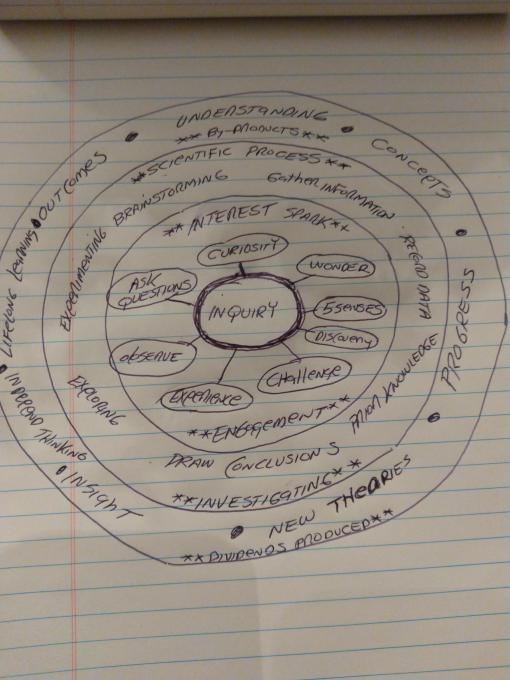Ron
Forum Replies Created
Viewing 5 posts - 1 through 5 (of 5 total)
-
RonParticipant
- Positioning youth as people who do science, framing the work globally and locally and attending to the unexpected are all key educator practices that I wish to model my citizen science programs and teachings. I want our local students and participating citizens to take ownership and meaningful roles and to be real citizen scientist making an impact and contributing locally but making a global impact also.
in reply to: Citizen Science in Your Classroom #735124 -
RonParticipantAs a Park Commissioner and I am creating a citizen science program for our Parks Department. We hope to engage our community to get involved with Citizen Science projects including local students, seniors and citizens at large. I plan to start by initially implementing a Tree Trekkers tree identification project, River water sample testing and birding projects. This course is providing information and insight for assisting in formulating and properly structuring the programs and processes we are working on launching. I look forward to getting our community involved in citizen science.in reply to: Intro to Citizen Science #735119
-
RonParticipantI am a former k-12 teacher and adjunct college instruction. I am currently a Park Commissioner and I am creating a citizen science program for our Parks Department. We hope to engage our community to get involved with Citizen Science projects including local students, seniors and citizens at large. I plan to start by initially implementing a Tree Trekkers tree identification project, River water sample testing and birding projects. This course is providing very beneficial information and insight for assisting in formulating and properly structuring the programs and processes we are working on launching. I anticipate all 4 levels (confirmation, structured, guided, open) of inquiry will be utilized to some degree in each of our citizen science projects with probably an empasses initially on structured and guided inquiry which will include, observation, data collection and some analysis.in reply to: Inquiry in Your Classroom #735118
-
RonParticipant
 in reply to: Intro to Inquiry #734818
in reply to: Intro to Inquiry #734818 -
RonParticipantI believe inquiry is the scientific process of learning through curiosity and wondering. By observing, asking questions, brainstorming, collecting data, researching, experimenting and processing all information we can then receive valuable feedback and draw conclusions from our investigation. Through exploring, we will uncover concepts as we investigate. "What do I know" and "How can I find out more" are questions we continue to ask to discover more as we become independent thinkers and lifelong learners. Intrinsically speaking, I also personally believe inquiry is sparked within us through a collaboration of our 5 major senses (sight, touch, hearing, smell and taste) being "unable" process or understand something which we have encountered or observed which therefore internally creates curiosity, and wonder within us along with a strong sense of discovery and exploration that motivates us to inquire and find out why our senses can't process or understand this. I believe that this internal process, discussed above, is what causes us to become interested in inquiring about something in the first place and that this is possibly what produces the initial natural "spark" of interest in us to find out why, and want to learn more, and to question and and to challenge. Inquiry is a process of discovering truth through science and involves taking chances, random analysis, data collection, research, analysis and drawing conclusions from these efforts. Concepts, theories, understanding , progress, and insight are the wonderful by-products and dividends produced from inquiry.in reply to: Intro to Inquiry #734817
Viewing 5 posts - 1 through 5 (of 5 total)
